 "The greatest obstacle to discovery is not ignorance -- it is the illusion of knowledge." ~ Daniel Boorstin
"The greatest obstacle to discovery is not ignorance -- it is the illusion of knowledge." ~ Daniel Boorstin
Thanks to the misrepresentation of facts and out of control spinning by many out there, most have not a clue about Hannah Poling's disease, its origins, and its significance. I have tried to explain it, to the best of my knowledge, having read multiple studies, having friends whose children have mitochondrial disease, and even having gone through the process of mito evaluation for my child, with Dr. Shoffner. Many bloggers have written on this, some have also written articles for various new organizations. The authors include other parents, both fathers and mothers ,(one of those moms also happens to have her PhD.), along with neurologists, scientists, and other physicians.
Despite that, people are opting to look past the facts and embrace half-truths and all-out lies. They prefer the sensationalist value of conspiracy theories and blaming the government for "injuring" our children. There are far too many masters of illusions weaving webs and indoctrinating parents into their beliefs, all for their own fame and fortune. To say that it's now been proven that vaccines cause autism (or mitochondrial disease), is beyond ignorant. Who cares if I don't have a clue about what disease Hannah Poling has? What difference does it make if she was born with this condition? I still blame the government!
The realization that Hannah Poling has a disease, one that was not caused by vaccines, and one that doesn't change anything for your own child or court case might be very upsetting to you. I get it. You were exhilarated by the Poling case (especially by those that hyped it to no end), feeling you too would be awarded money for your child's autism. Then you come to find out that Hannah, is in fact, not like your child--how disappointing for your case. I understand that. I realize it may feel better to hang onto something you have believed for so long--even when there is no solid proof or evidence to support those views. To think in new terms, acknowledge that all you had come to believe was all wrong, can be very difficult. But please, I urge you, look at the facts. Look at what the real science shows and proves, with regard to Hannah's condition. See what the real scientists, not a journalist, a lawyer, or other spin "doctors" are saying.
READ THIS, from Scientific American author Nikhil Swaminathan on what Dr. John Shoffner (a mitochondrial disease expert) has to say:
He notes that the route from the vaccine to the child's autism was by no means direct. Hannah's mitochondria were already underperforming, so when she developed a fever from her vaccine, the increased energy requirements likely pushed them past their thresholds. A fever caused by an ear infection or the flu would likely have triggered the autism symptoms if they occurred before or between the ages of 24 and 36 months, he says, which is when classic, regressive autism, which affects one third of sufferers, usually appears.So, now you know what a mito expert has to say. Not just any mito expert, but THE one who was involved in a study with Dr. Poling, and MOST significantly, the ONE who diagnosed Hannah Poling with mitochondrial disease. Now what say you?
Shoffner notes that parents and advocates looking to impugn vaccines as triggers for autism—or mitochondrial disease—need direct, not just circumstantial, evidence. "If you were sitting in a waiting room full of people and one person suddenly fell ill or died or something," he says, "would you arrest the person sitting right next to them?"
Jon Poling, says Shoffner, has been "muddying the waters" with some of his comments. "There is no precedent for that type of thinking and no data for that type of thinking," Shoffner says.
Illusion
- Pronunciation:
- \i-ˈlü-zhən\
- Function:
- noun
- Etymology:
- Middle English, from Anglo-French, from Late Latin illusion-, illusio, from Latin, action of mocking, from illudere to mock at, from in- + ludere to play, mock
- 1 aobsolete : the action of deceiving b (1): the state or fact of being intellectually deceived or misled
This is an illusion:
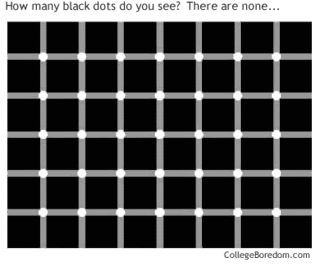
This is not:
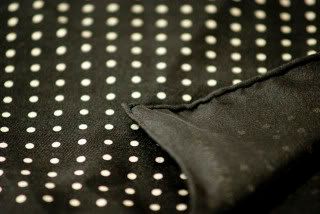
In the first picture the dots don't really exist, they are all an illusion. In the second, the dots are really there, a fact that is easily proven. Illusions are all around us. They are fun and novel, when they come in forms of art and imagery. However, they are dangerous when they stem from issues of medicine and science.
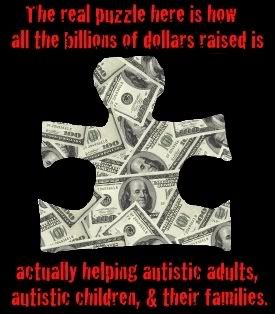







 This Way of Life
This Way of Life

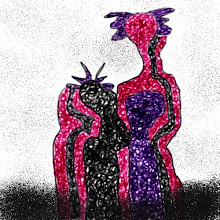

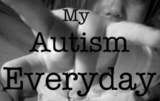





 "Autism is a way of being. It is pervasive; it colors every experience, every sensation, perception, thought, emotion, and encounter, every aspect of existence. It is not possible to separate the autism from the person."
- Jim Sinclair
"Autism is a way of being. It is pervasive; it colors every experience, every sensation, perception, thought, emotion, and encounter, every aspect of existence. It is not possible to separate the autism from the person."
- Jim Sinclair







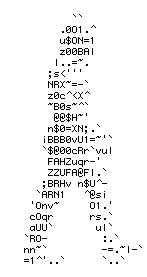
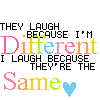
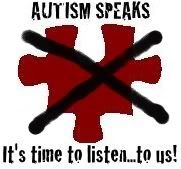




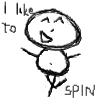

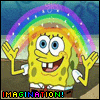





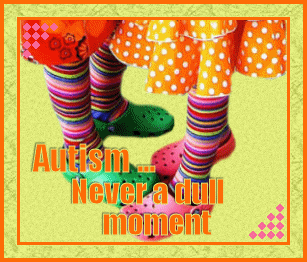

1 comment:
My First reaction was "What black dots"? I had to cross my eyes to see them. Maybe it's the Asperger's.
Post a Comment